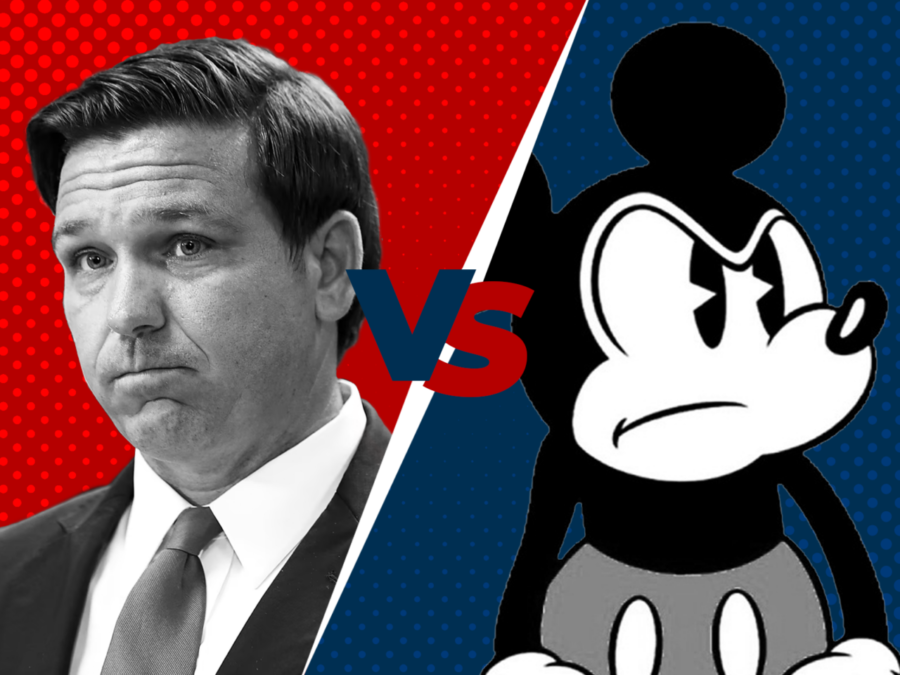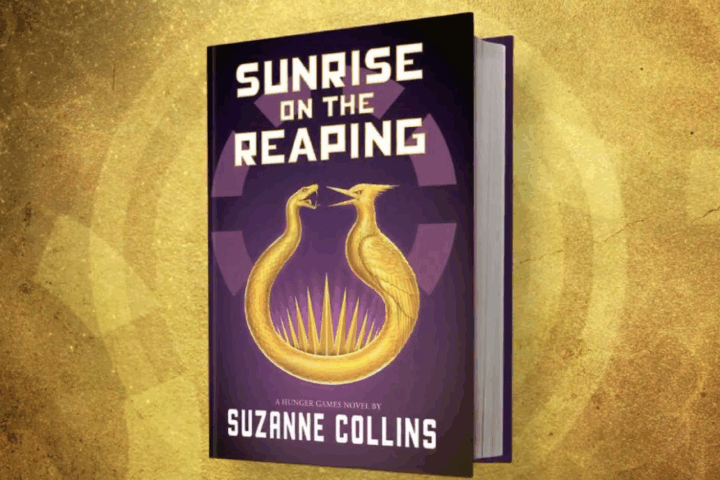Florida Governor and 2024 Presidential Candidate Ron DeSantis is mired in a political rivalry with one of the most successful and admired entertainment corporations in the world: Disney.
In 1967, the Walt Disney Company was given a special tax status in the Orange and Osceola counties of Florida which ultimately allowed Disney to operate as its own local government. The company saved millions of dollars through tax reductions in exchange for maintaining water, electrical and waste facilities, as well as paying for medical and fire services. However, after more than 55 years of breaks, Governor DeSantis decided to limit Disney’s ability to self-govern after what is really a battle over Disney being “too gay friendly a place.” DeSantis, who is positioning himself on the hard right, and Disney, are in a public dispute over the DeSantis’ Parental Rights Bill, more widely known as “Don’t Say Gay,” which essentially bans in-class discussions regarding sexual orientation and gender identity through the third grade. Disney’s public objection to the legislation led people to conclude that his treatment of Disney appeared to be a retaliation against them, a weaponizing of gubernatorial powers to harm companies that exercised their First Amendment right of free speech.
Many Americans have been following DeSantis, especially since he recently announced his presidential campaign bid on Twitter and will, therefore, go against Trump for the upcoming Republican nomination. He has proven to be a politician unafraid to push back against powerful corporations, and opinions on DeSantis vary widely depending on one’s political opinions and priorities. However, here at Fieldston, many students and faculty tend to view DeSantis as “despicable” and a political figure “worse than Trump.”
It is important to note that while many Republican politicians agree with DeSantis’s campaigns on “ending wokeness,” even they disagree with his attack on Disney, an epicenter of tourism in Florida which brings in more than 58 million people yearly, according to a 2019 study.
Traditional conservative values include historically limited government interference in exchange for freedom of the individual or corporation, so it seems out of character for DeSantis, an extreme conservative, to attack a company with targeted legislation. This leads most to believe that DeSantis enacted the law as a personal revenge; dozens of articles headlined this as an act of war. Without the backdrop of the Parental Rights dispute, DeSantis’s desire to reverse decades-old legislation may have received some support from conservatives given its unique benefit for a single company. However, DeSantis has now lost the support of many conservatives nationally over this issue and it has harmed his presidential aspirations. The question that should be asked in isolation is whether or not Disney’s special tax status is appropriate.
In 1967, the Florida legislature created a special district called Reedy Creek Improvement District, to support the development of Walt Disney World. This legislation has resulted in what is now the largest generator of tourism dollars for the state, Disney being the largest single tax payer in the state and employment for more than 75,000 people. By all accounts, this has been a wildly successful partnership between the state of Florida and Disney. This is also not entirely unique, as state and local governments frequently provide special treatment to sports team owners — for example, when they build new stadiums with major tax breaks. In these situations, the government has weighed the benefits of employment and economic impact of keeping a team in their city or state vs. losing the team to another city. It is undeniable that Desantis’s actions were not in favor of the state of Florida.
According to Upper School History teacher Dr. Paul Heideman, DeSantis purposefully takes steps to create polarized political opinions. Heideman mentioned that he believes DeSantis is an inferior version of Trump because “Trump is good at being polarizing in a way that is entertaining and that people want to watch, with DeSantis the bullying mean-spirited part…” He also adds that it was not in DeSantis’ best interest to “pick a kind of pointless fight with one of the biggest employers in your state and it seems like he’s done so in a particularly legally sloppy way.” Fieldston History teacher Dr. Jonah Birch similarly states that: “going to war with one of the largest businesses in your state seems really dumb to me at a purely strategic level.”
Having followed the same tax policy for years, the sudden necessity for change suspiciously appeared not long after Disney spoke out against the Parental Rights Bill, releasing a statement on March 28, declaring they would see it through and that the law would be “repealed by the legislature or struck down in the courts.” Heideman echoes that idea, confidently declaring that DeSantis’ laws “seem pretty clearly retribution.”
Many of Fieldston’s students have similar opinions when it comes to DeSantis. Form III student Alexander Bello states, “The idea that [DeSantis] might be our next president is terrifying and disheartening as an American person…Every platform he has is based on hate, fear and ignorance.” Bello further states that he feels DeSantis is currently a threat because of his overwhelming popularity and successful ability to achieve his goals. Despite an acknowledgment of limited knowledge of the specifics of the Disney vs. DeSantis lawsuit, Bello declared without a doubt that DeSantis’ laws and the placing of taxes on Disney were solely due to their denunciation of the Parental Rights Bill otherwise known as “Don’t Say Gay.”
Alexander Goodman, another Form III student, agreed that DeSantis is a major threat, even more so than Donald Trump. Goodman voiced, “He’s definitely maximized the power of the governor’s office beyond what it should ever be. I think that makes him a very dangerous guy…” Still, with the belief that DeSantis’ attack was ultimately a form of retaliation, Goodman acknowledges the true issue behind Disney’s situation. “I feel like what Disney was doing was on shaky ground but they had a contract…Disney had all the proper documentation in place,” said Goodman. While he felt that Disney’s special treatment was questionable, DeSantis’ excuse for pursuing the cause was unprofessional. Goodman states that “[DeSantis] should not have started things with Disney. I feel like there was no need for the uproar that he caused.” On a related note, Birch adds, “He’s so stupid for taking on such a large company over something he’s not going to get a lot of sympathy on among a very broad swath of the population.”
Voters need to determine whether the governor was potentially using the law as retribution against any one person or company for speaking up against something he supports and whether or not that is appropriate in a democracy. Republican voters will certainly take DeSantis’ Disney decisions into consideration in 2024, when they determine whether or not they support DeSantis’ approach to governing over the alternatives.






